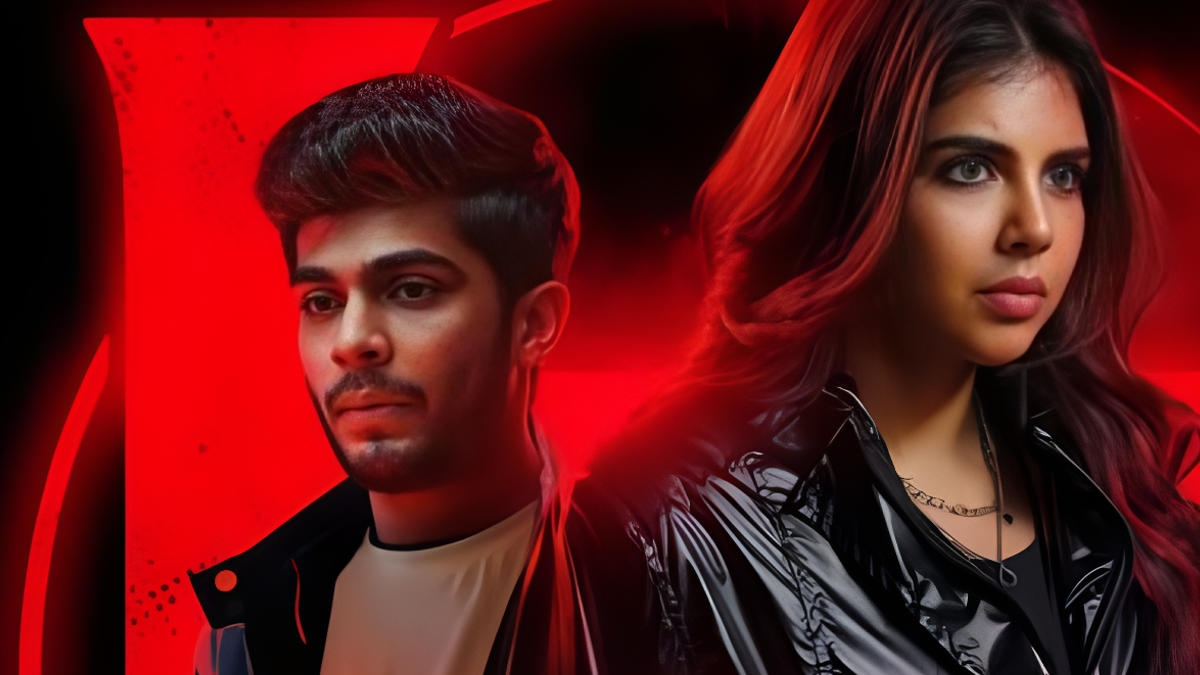Movie: Lokah Chapter 1: Chandra
Director: Dominic Arun
Cast: Kalyani Priyadarshan, Durga C. Vinod, Naslen, Sandy, Tovino Thomas, Dulquer Salmaan, Arun Kurian, Chandu Salimkumar, Nishanth Sagar, Raghunath Paleri, Vijayaraghavan, Shivajith Padmanabhan, Nithya Shri, Sarath Sabha, Anna Ben, Sunny Wayne, Sam Mohan
Runtime: 2hrs 31mins
Lokah Chapter 1: Chandra positions itself as an ambitious experiment — a new kind of Indian superhero film that draws from mythology rather than Western comic book tropes. The premise is promising – a girl-next-door figure who is slowly revealed to be something far more, an immortal drawn from Kerala’s folklore, stepping into the space of a female-led superhero narrative. For Indian cinema, and especially Malayalam cinema, that in itself feels like a bold move.
Kalyani Priyadarshan, already known for her steady body of work, takes on what is arguably her most demanding role yet. As Chandra, she embodies both the simplicity of an ordinary young woman and the darker, more enigmatic truth of an immortal Yakshi. This duality is not easy to carry, but she delivers it with conviction, and her presence gives the film much of its appeal, even when the writing falters.
The film opens with the air of a secret — the fact that Chandra, who seems to be an ordinary girl-next-door, is not entirely human but something much more. Chandra is ‘summoned’ to Bangalore, lives under the guise of an ordinary café worker until an organ-trafficking gang exposes her hidden identity. She is, in truth, Kalliyankattu Neeli — an immortal Yakshi born of myth and tragedy, recruited centuries ago to safeguard humanity alongside other superpowered beings. As she battles the corrupt inspector Nachiyappa and his criminal allies, her dual life as both protector and outcast comes to the fore. The mythology that explains Chandra’s existence is compelling at first, but the script complicates it with the presence of other immortals, introduced without much clarity.
The unsettling part is that these supposed supernatural beings appear to be under the control of ordinary humans, though the why and how of this is left frustratingly vague. While the premise of a mythological superhero is refreshing, the film struggles to hold together its disparate parts, jumping between crime thriller, supernatural fantasy, and social drama without convincingly resolving any of them. The climax resolves her immediate conflict but leaves the trafficking network and larger mythological universe wide open, hinting at more powerful forces and characters waiting in the sequels.
The film’s ambition is undeniable, but its execution leaves cracks. Too many narrative strands are left dangling. The drug mafia and organ trafficking rackets never reach a satisfying resolution, and once Chandra’s supernatural arc takes over, these very real conflicts fade into the background. The climax is abrupt, suggesting a larger story yet to come, but failing to tie up what has already been set in motion. If Chandra is moved elsewhere, are the criminals she was pitted against simply forgotten? The final tease — Dulquer Salmaan’s sudden appearance in a vague action montage before the screen fades to black — feels more like a marketing gimmick than a satisfying end.
It is worth adding that I experienced Lokah Chapter 1 in its Hindi-dubbed version. While the visuals, music, and overall storytelling style came through, it is quite possible that the dubbing compromised the impact of the original Malayalam dialogues and narration. Tonal subtleties, cultural context, and poetic weight often get lost in translation, and this could explain why certain parts of the script felt flatter or less immersive.
Despite its flaws, Lokah Chapter 1 deserves recognition for daring to imagine a mythological superhero universe led by a woman. The technical craft is striking — visually arresting frames, strong sound design, and a heroine whose presence anchors the film. Yet, ambition without narrative focus keeps it from soaring.
As the beginning of a franchise, it remains fascinating but frustrating – a film that excites more for its concept than its actual storytelling. The hope is that future chapters will sharpen the focus, flesh out the mythology, and close the gaps left dangling here. For now, Chandra stands as a bold, flawed, but undeniably intriguing first step into a world of Indian mythological superheroes.

